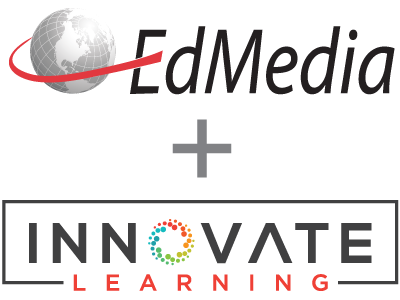
The Impact of Robotics Competitions on Youth STEM Learning, Attitudes and 21st Century workplace Skills
PROCEEDINGS
Gwen Nugent, Bradley Barker, Andrew White, University of Nebraska-Lincoln, United States ; Neal Grandgenett, University of Nebraska at Omaha, United States
EdMedia + Innovate Learning, in Lisbon, Portugal ISBN 978-1-880094-89-1 Publisher: Association for the Advancement of Computing in Education (AACE), Waynesville, NC
Abstract
This study investigated the influence of an established robotics competition (FIRST LEGO League) on middle school youth’s learning of technology and engineering, and their attitudes towards science, technology, engineering, and mathematics, and 21century workplace skills. Using objective multiple-choice assessments and a pre-post repeated measures design, results showed significant increases in scores for content learning, 21st century skills, and robotics self-efficacy. Results suggest that informal learning experiences such as robotics competitions may be a useful link to help bridge the gap between content knowledge and competencies that students are learning in school and the knowledge and skills they need for success in their communities and workplace.
Citation
Nugent, G., Barker, B., White, A. & Grandgenett, N. (2011). The Impact of Robotics Competitions on Youth STEM Learning, Attitudes and 21st Century workplace Skills. In T. Bastiaens & M. Ebner (Eds.), Proceedings of ED-MEDIA 2011--World Conference on Educational Multimedia, Hypermedia & Telecommunications (pp. 3614-3619). Lisbon, Portugal: Association for the Advancement of Computing in Education (AACE). Retrieved August 5, 2024 from https://www.learntechlib.org/primary/p/38380/.
© 2011 Association for the Advancement of Computing in Education (AACE)
Keywords
References
View References & Citations Map- AAAS. (2007). Science. 38, 1086-1087.
- Buckhaults, C. (2009). Increasing computer science participation in the FIRST robotics competition with robot simulation. In Proceedings of the 47th Annual Southeast Regional Conference, Clemson, SC.
- DeBacker, T.K., & Nelson, R.M. (1999). Variations on an expectancy-value model of motivation in science. Contemporary Educational Psychology, 24, 71-94.
- Goodman Research Group. (2000, November). Final Report to FIRST. Cambridge, MA.
- Holland, R.W., Meertens, R.M., & Van-Vugt, M. (2002). Dissonance on the road: Self esteem as a moderator of internal and external self-justification strategies. Personality and Social Psychology Bulletin, 28(12), 1713– 1724.
- Melchior, A., Cohen, F., Cutter, T., & Leavitt, T. (2005, April). More than Robots: An Evaluation of the FIRST Robotics competition Participant and Institutional Impacts. Waltham, MA: Brandeis University. Available from http://www.usfirst.org/uploadedFiles/Who/Impact/Brandeis_Studies/FRC_eval_finalrpt.pdf
- Murphy, P.J. (1997). National robotics competition brings out the fun in learning. Technology Teacher, 57 (2), 2931.
- Nugent, G., Barker, B., Grandgenett, N., & Adamchuk, V. (2010). Impact of robotics and geospatial technologies interventions on youth STEM learning and attitudes. Journal of Research in Technology Education, 42, 391-408.
- Nugent, G., Barker, B., Toland, M., Grandgenett, N., & Adamchuk (2009). Measuring the impact of robotics and geospatial technologies on youth science, technology, engineering, and mathematics attitudes. Proceedings of the World Conference on Educational Multimedia, Hypermedia, and Telecommunications, Honolulu, HI.
- Organisation for Economic Co-Operation and Development. (2007). Education at a glance 2007: OECD indicators. Paris, France..
- Petre, M., & Price, B. (2004). Using robotics to motivate ‘back door’ learning. Education and Information Technologies, 9(2), 147-158.
- Pintrich, P., Smith, D., Garcia, T., & McKeachie, W. (1991). A Manual for the Use of the Motivated Strategies for Learning Questionnaire. Ann Arbor: University of Michigan.
- Pintrich, P.R., Smith, D.A.F., Garcia, T., & McKeachie, W.J. (1993). Reliability and predictive validity of the motivated strategies for learning questionnaire (MSLQ). Educational and Psychological Measurement, 53, 801-814.
- Sklar, E., Johnson, J., & Lund, H. (2000). Children learning from team robotics: Robocupjunior 2000 educational research report. Milton Keynes, UK: The Open University.
- Sorge, C. (2007). What happens: relationship of age and gender with science attitudes from elementary to middle school. Science Educator, 16, 33 – 37.
- Verner, I.M., & Waks, S. (1999). Educational features of robot contests: The RoboCup-98 survey. Advanced Robotics, 14(1), 65-74.
- Wai, J., Lubinski, D., Benbow, C.P., & Steigher, J.H. (2010). Accomplishment in science, technology, engineering, and mathematics (STEM) and its relation to STEM educational dose: a 25-year longitudinal study. Journal of Educational Psychology.
- Welch, A. (2010). Using the TOSRA to assess high school students' attitudes toward science after competing in the FIRST Robotics Competition: An exploratory study. Eurasia Journal of Mathematics, Science, & Technology Education, 6(3), 187-197.
These references have been extracted automatically and may have some errors. Signed in users can suggest corrections to these mistakes.
Suggest Corrections to ReferencesCited By
View References & Citations Map-
Learning with FIRST LEGO League
Chalmers Chris, Queensland University of Technology, Australia
Society for Information Technology & Teacher Education International Conference 2013 (Mar 25, 2013) pp. 5118–5124
These links are based on references which have been extracted automatically and may have some errors. If you see a mistake, please contact info@learntechlib.org.
